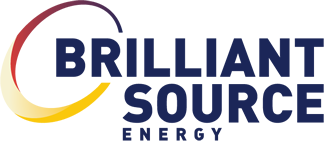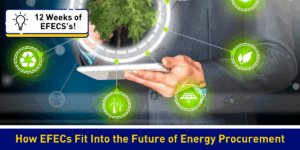The future of energy is rapidly evolving as businesses, governments, and individuals seek innovative ways to reduce carbon emissions and protect the environment. Emission-Free Energy Certificates (EFECs) are one of the most impactful tools in this shift, providing businesses with a clear path to support emission-free energy and achieve carbon neutrality. EFECs not only help companies meet current sustainability goals but also pave the way for a cleaner, more resilient economy.
In this blog, we’ll explore how EFECs are shaping the future of emission-free energy and why they are an essential part of building a sustainable economy.
EFECs: A Bridge to a Carbon-Neutral Future
Emission-Free Energy Certificates (EFECs) represent a new approach to clean energy that allows businesses to offset emissions without altering their existing energy sources. By purchasing EFECs, companies contribute to the production of clean power, supporting nuclear and other emission-free sources that are essential for a stable, low-carbon energy grid.
EFECs make it possible for businesses of all sizes to take immediate action toward carbon neutrality. As more companies invest in these certificates, the collective impact accelerates progress toward a sustainable economy.
The Role of EFECs in the Clean Energy Movement
EFECs play a critical role in advancing the clean energy movement by promoting consistent, reliable power sources that complement intermittent renewable energy. Here’s how they support long-term sustainability:
- Continuous Power Supply: Unlike solar and wind, which depend on weather, nuclear power provides 24/7 emission-free energy, ensuring a stable power supply.
- Scalability for All Sectors: EFECs make it easy for businesses across industries to scale their carbon offset efforts, making large-scale impact achievable.
- Support for Emission-Free Power Generation: As more companies purchase EFECs, demand increases for clean power sources, promoting ongoing investment in sustainable infrastructure.
Why Businesses Are Turning to EFECs
Companies that prioritize sustainability and ESG goals recognize the advantages of EFECs in reaching carbon neutrality. Here’s why EFECs are becoming a go-to solution:
- Flexible and Cost-Effective: EFECs are affordable and accessible, allowing companies to offset carbon emissions without high costs or infrastructure changes.
- Reinforcing ESG Profiles: By supporting emission-free energy, businesses can strengthen their ESG ratings and appeal to eco-conscious investors and customers.
- Alignment with Future Regulations: As governments set stricter environmental standards, EFECs offer a proactive way to prepare for future regulations and requirements.
Building a Sustainable Economy Together
The shift to a sustainable economy relies on innovative solutions like EFECs that enable companies to balance operational needs with environmental responsibility. By investing in emission-free energy, businesses contribute to the long-term viability of a carbon-neutral future, fostering an economy where clean energy is both accessible and reliable.
Conclusion
Emission-Free Energy Certificates (EFECs) are paving the way for a sustainable economy, helping businesses meet their carbon neutrality goals while supporting reliable, emission-free energy. As more organizations embrace EFECs, the future of clean energy looks promising, with opportunities to drive positive environmental impact and strengthen the economy.
Ready to be part of the clean energy future? [Learn how EFECs can help your business reach carbon neutrality](Landing Page Link) and lead the way to a sustainable economy.







